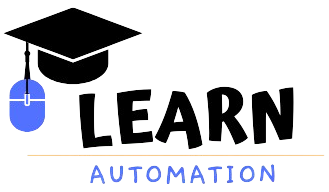
In today’s tech-driven world, software testing is a crucial part of the development lifecycle. Among the various types of testing, automation testing stands out as a game-changer. It’s not just about testing software faster; it’s about ensuring quality, efficiency, and reliability in a way manual testing cannot match. Let’s dive into why learning automation testing can be one of the most rewarding decisions for your career.
Why Automation Testing Is Needed
- Speed and Efficiency: Manual testing can be time-consuming, especially for repetitive tasks like regression testing. Automation testing dramatically reduces the time required by executing pre-scripted tests quickly and accurately.
- Error Reduction: Humans are prone to mistakes, especially when performing repetitive tasks. Automated scripts execute tests with precision, reducing the risk of human error.
- Cost-Effective in the Long Run: While the initial setup cost for automation is high, it becomes cost-effective over time as it reduces the manual effort needed.
- Scalability: Automation allows you to test applications across various environments and platforms simultaneously, which is almost impossible manually.
- Continuous Integration and Deployment: Automation testing is a cornerstone of CI/CD pipelines, ensuring that new changes are tested promptly and seamlessly.
Pros of Learning Automation Testing
- High Demand: The demand for skilled automation testers is soaring as more companies adopt Agile and DevOps practices.
- Lucrative Salaries: Automation testers often earn higher salaries compared to manual testers due to their specialized skill set.
- Diverse Career Opportunities: Proficiency in automation opens doors to roles like QA Engineer, Test Automation Engineer, or even Test Architect.
- Skill Enhancement: Learning automation testing not only improves your testing skills but also exposes you to programming, scripting, and tools like Selenium, Appium, and JMeter.
- Job Security: With automation becoming a standard in the industry, having automation skills ensures you remain relevant in the job market.
Career Paths in Automation Testing
Automation testing offers diverse roles, including:
- Automation Test Engineer: Designing and writing test scripts for automation.
- QA Automation Lead: Leading automation testing teams and strategies.
- Performance Test Engineer: Specializing in performance and load testing.
- SDET (Software Development Engineer in Test): Combining development and testing expertise.
These roles are not limited to the IT sector; industries like healthcare, finance, gaming, and e-commerce also require skilled automation testers.
Final Words
Automation testing is not just a skill; it’s an investment in your future. Taking small, consistent steps every day can lead to significant success over time. By learning automation testing, you’re stepping into a world filled with opportunities, growth, and innovation. Whether you’re a beginner or transitioning from manual testing, now is the perfect time to embark on this journey. The best way to achieve greatness is to truly enjoy what you do, and automation testing has the potential to make your work both exciting and impactful.
Every expert was once a beginner. Stay motivated, keep learning, and embrace the exciting challenges that come your way. Your future is shaped by what you do today, so start now and make it count. Let’s take the first step towards becoming an automation testing expert together!

Leave a Reply